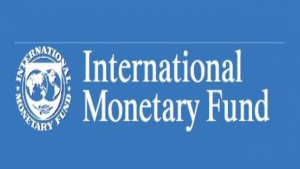IMF Tasks Nigeria to Hike VAT, Remove Fuel Subsidy

International Monetary Fund (IMF) has once more advised Nigeria’s federal government to increase Value Added Tax (VAT), called for the removal of fuel subsidy, while suggesting other fiscal measures that the country could adopt to stimulate economic growth.
The institution stated these in its 2021 Article IV Consultation with Nigeria released recently, where it also proffered monetary policies that could also support sustainable growth.
The IMF, however, applauded the Nigeria’s government over measures that were taken that averted the devastating impact of the COVID-19.
It stated: “Executive Directors agreed with the thrust of the staff appraisal. They commended the authorities’ proactive management of the COVID-19 pandemic and its economic impacts.
“They noted, however, that the outlook remains subject to significant risks, including from the pandemic trajectory, oil price uncertainty, and security challenges. Looking ahead, they emphasised the need for major reforms in the fiscal, exchange rate, trade, and governance areas to lift long-term, inclusive growth.
“Directors highlighted the urgency of fiscal consolidation to create policy space and reduce debt sustainability risks. In this regard, they called for significant domestic revenue mobilisation, including by further increasing the value-added tax rate, improving tax compliance and rationalising tax incentives.”
It stated further: “Directors also urged the removal of untargeted fuel subsidies, with compensatory measures for the poor and transparent use of saved resources. They stressed the importance of further strengthening social safety nets.”
The institution also recommended the removal of the official exchange rate and further measures towards a unified and market-clearing exchange rate to help strengthen Nigeria’s external position, taking advantage of the current favorable conditions.
Also, the IMF noted that exchange rate reforms should be accompanied by macroeconomic policies to contain inflation, structural reforms to improve transparency and governance, and clear communications regarding exchange rate policy.
“Directors considered it appropriate to maintain a supportive monetary policy in the near term, with continued vigilance against inflation and balance of payments risks.
“They encouraged the authorities to stand ready to adjust the monetary stance if inflationary pressures increase. Directors recommended strengthening the monetary operational framework over the medium term focusing on the primacy of price stability and scaling back the central bank’s quasi-fiscal operations.
“Directors welcomed the resilience of the banking sector and the planned expiration of pandemic-related support measures. They agreed that while the newly launched eNaira could help foster financial inclusion and improve the delivery of social assistance, close monitoring of associated risks will be important.”
They also advised on further efforts to address deficiencies in the Anti-Money Laundering and Countering Financing of Terrorism (AML/CFT) framework.
The IMF Directors harped on the need for bold reforms in the trade regime and agricultural sector, as well as investments, to promote diversification and job-rich growth and harness the gains from the African Continental Free Trade Agreement.
“Directors called for stronger efforts to improve transparency of COVID-19 emergency spending. Directors noted that Nigeria’s capacity to repay the Fund is adequate. They encouraged addressing data gaps to allow timely and clear assessments of reserve adequacy,” it added.
The IMF highlighted that the authorities’ proactive approach to contain COVID-19 infection rates and fatalities and the recent growth improvement, socio-economic conditions remained a challenge, stressing that the levels of food insecurity have since risen and poverty rate was estimated to have risen during the pandemic.
According to the Fund, “The outlook faces balanced risks. On the downside, low vaccination rates expose Nigeria to future pandemic waves and new variants, including the ongoing Omicron variant, while higher debt service to government revenues through higher US interest rates and or increased borrowing pose risks for fiscal sustainability. A worsening of violence and insecurity could also derail the recovery.
“On the upside, the non-oil sector could be stronger, benefitting from its recent growth momentum, supportive credit policies, and higher production from the new Dangote refinery. Nigeria’s ratification of the African Continental Free Trade Agreement could also yield a positive boost to the non-oil sector while oil production could rebound, supported by the more generous terms of the Petroleum Industry Act.”
